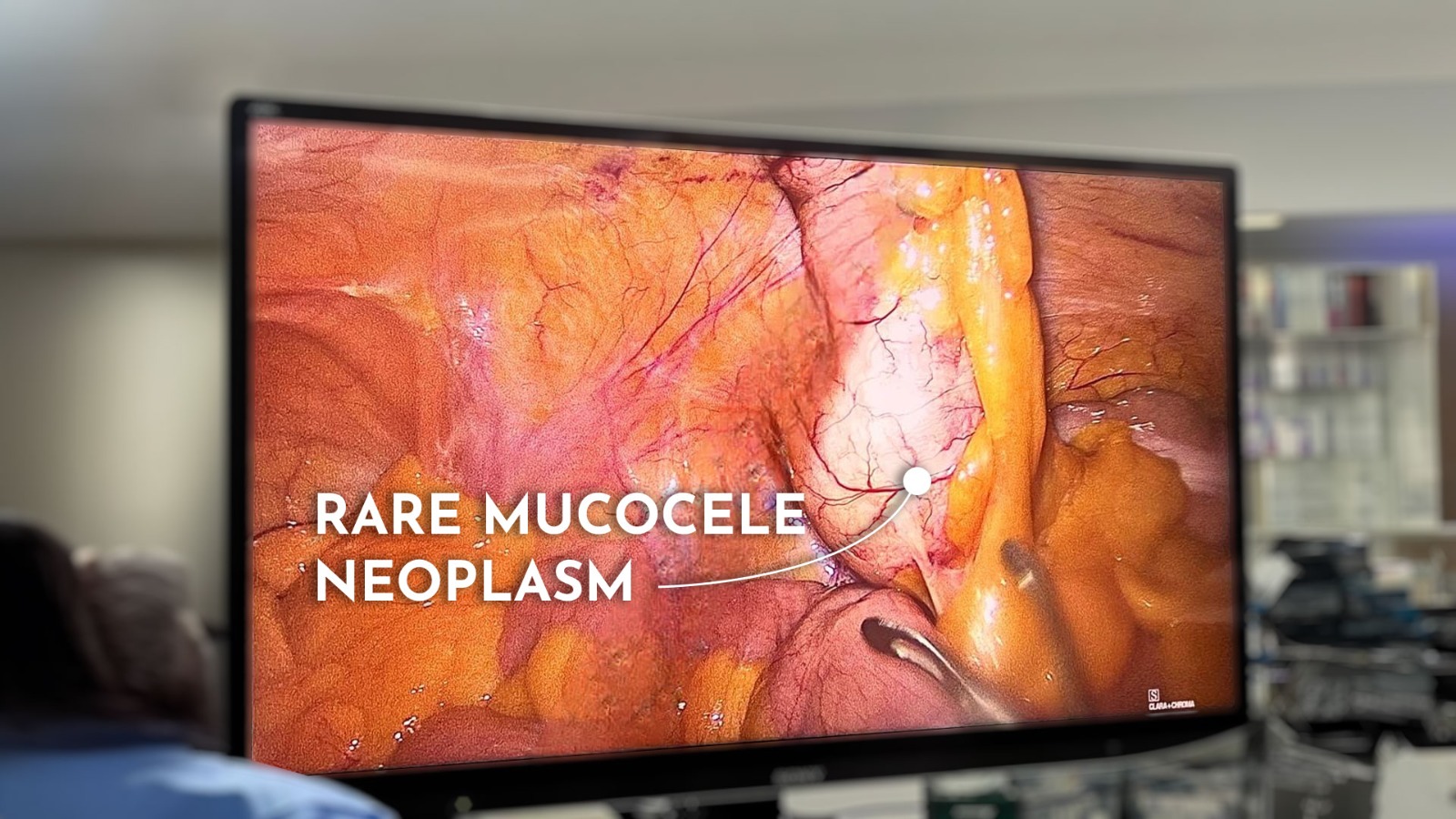Rare Mucocele Neoplasm(LMAN) of the Appendix in 50-year-old successfully treated using state-of-the-art 3D Laparoscopy . The utilization of advanced 3D Laparoscopy at MASSH Super Speciality Hospital marks a significant advancement in the field, offering patients minimally invasive yet highly effective treatment options for complex conditions with precision safety and a promise to return you to good health within no time.
A rare case of Mucocele Neoplasm(LMAN) of the Appendix was successfully treated at MASSH Super Speciality Hospital utilizing state-of-the-art 3D Laparoscopy. Dr. Sachin Ambekar, Director of Minimal Access Surgery, Surgical Oncology & Medical Director at MASSH Hospital, spearheaded the operation.
The patient, a 50-year-old post-menopausal female, presented with symptoms of right lower abdominal pain and nausea persisting for 15 days. Upon evaluation with Contrast-Enhanced CT, a 14.3 x 13.8 x 8.5 cm tubular, thick-walled cystic mass was discovered, extending from the base of the caecum to the right adnexa in the pelvis, indicative of Mucocele of the appendix.
"Mucocele of the appendix is a rare clinical entity, and its treatment requires meticulous care and precision, with no spillage technique. Mucocele of the appendix poses diagnostic and therapeutic challenges due to its rarity.

During the procedure, performed with 3D Laparoscopy, adhesions were visualized in 360-degree depth perception not seen in conventional laparoscopy, and meticulous dissection was carried out without any mucinous spill. A cystic mass of the appendix (14.3 x 13.8 x 8.5 cm), with inflamed walls but without perforation was located in the right iliac fossa. Notably, no lesions were found in the peritoneal cavity.
The base with caecal cuff was Endolooped and the specimen was removed in an Endobag without any peripheral contamination, the H.P.E confirmed LMAN with clear margins. "3D Laparoscopy played a crucial role in this operation by enabling us to visualize and dissect with never before seen 360-degree in-depth precision," commented Dr. Ambekar. "This technology offers significant advantages over conventional laparoscopy, particularly in delicate procedures such as this."

The patient underwent a successful 3D Laparoscopic Appendectomy, the histopathologic diagnosis confirmed low-grade appendiceal mucinous neoplasms (LAMNs) with clear margins as no pathologic process was identified in the base of the appendix. Remarkably, the patient experienced no complications during the postoperative period and was discharged from the hospital on the second day. This condition, initially identified by Rokitansky in 1842, is uncommon, occurring in only 0.07–0.63% of all appendectomy cases. Postoperatively, approximately 9 in a million patients are diagnosed with this rare health condition.
Reflecting on the significance of the achievement, Hanish Bansal, Chairman & Executive Director of MASSH stated, "Our hospital remains committed to pushing the boundaries of medical innovation and delivering superior patient care. This successful treatment of a rare appendiceal condition underscores our dedication to excellence in healthcare."